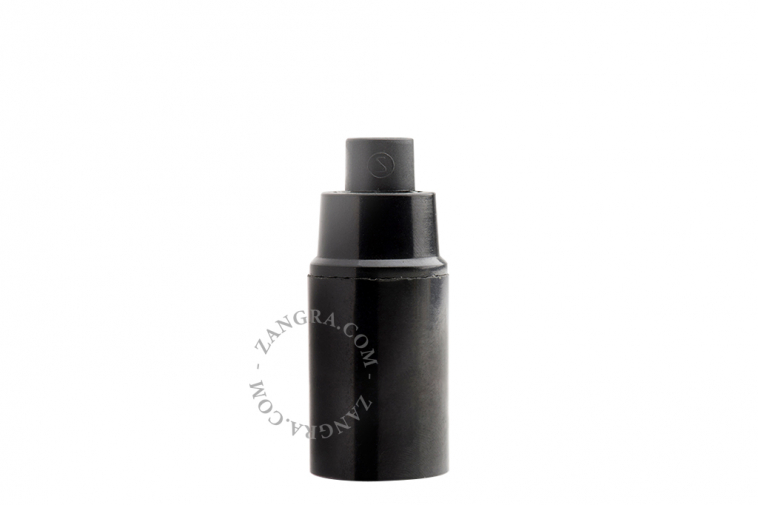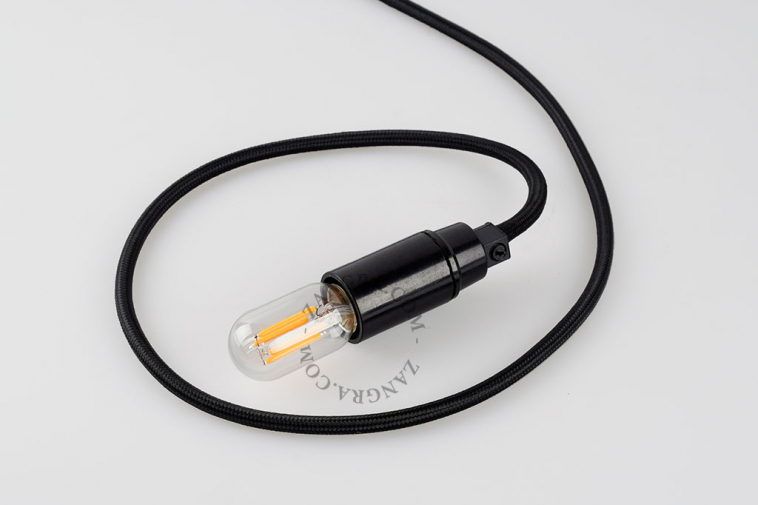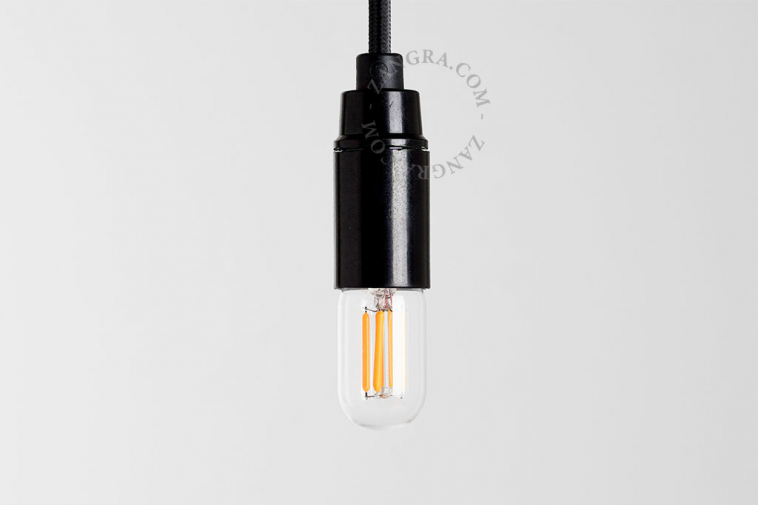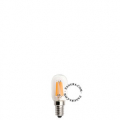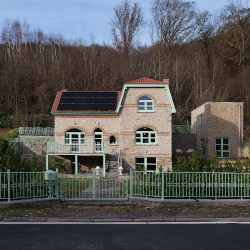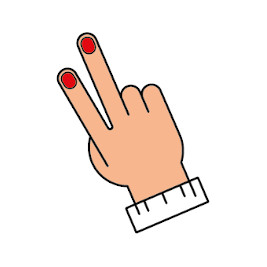E14 black bakelite lamp holder
socket.004.e14
DKK 26.16
x
x
Bakelite E14 lamp holder
Discover our E14 lamp holder in bakelite, an ideal choice for your lighting projects. Bakelite is known for its robustness and heat resistance.
E14 lamp holders are often used for decorative lighting and are perfect for creating pendant lights.
Choose a lighting solution that combines style and performance!
How to open and unlock a bulb holder?
Our lamp holders have a safety feature, which means that once put together, they cannot be unscrewed any more. This is to ensure you don’t undo the lamp holder when changing the bulb and give yourself a nasty electric shock! To attach a power cord to the lamp holder, you need to unscrew the base first. To do this, you have to push down the retention pin inside the lamp holder (e.g. with a screwdriver) and unscrew the upper ring.Design your pendant light in just a few clicks!
Create a customized pendant light, adapted to your needs.1. Choose a ceiling rose
2. Order a textile cable of the desired length
3. Select a socket or shade
You can assemble the components yourself or, if you are not handy, have our team do the assembly for you. In this case, please add our assembly product to your order. An assembly means a socket is connected to the cable. If you have several sockets to assemble, please choose the equivalent number of "assembly products".
What is bakelite?
Functional and aesthetic, bakelite is the ideal material for electrical engineering.Developed at the beginning of the 20th century by the Belgian chemist Leo Baekeland - from whom the term derives its name - bakelite is known for its heat-resistant properties, as well as its stability and high electrical insulation. Until the 1960s, bakelite participated in the elaboration and development of many technical innovations - such as the telephone and radio. For financial reasons, however, bakelite was gradually replaced by thermoplastic, which was less dense but also of a less comparable quality.
Today, in order to offer a quality alternative to thermoplastics, some factories located on the European continent are relaunching the production of bakelite, using traditional moulds and tools.
| SKU | socket.004.e14 |
| EAN code | 5415249010270 |
| Material | Bakelite |
| Colour | Black |
| Height | 6,5 cm |
| Diameter | Ø 2,5 cm |
| Marking | CE / ENEC |
| Lamp holder type | E14 |
| Wattage | max 6W LED |
| Voltage | 250 V |
| Frequency | ~ 50 Hz |
| Protection marking | IP20 |
| Safety class | Class 2 |
| Protection's indice | |
